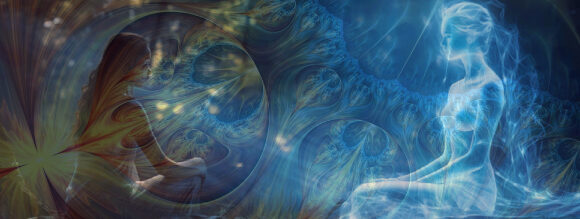In recent years, there has been a noticeable shift in the way people approach their health and wellness. While traditional medical science still plays a crucial role in treating illness, a growing number of individuals are turning to energy healers, alternative therapies, and the broader wellness movement. This trend is driven by various factors, including a loss of trust in conventional medicine, a desire for more holistic care, and a deeper spiritual yearning for healing that goes beyond the physical.
From a spiritual perspective, this shift can be understood as a desire to reconnect with a more intuitive, integrative approach to health—one that honours the body, mind, and spirit as interconnected aspects of the self. This article will explore the reasons behind the growing distrust in medical science and why more people are embracing energy healing and alternative treatments.
Introduction: The Search for Healing Beyond the Physical
For centuries, modern medicine has been the dominant approach to treating illness. It has brought about remarkable advances, from antibiotics to surgical techniques, that have saved countless lives. However, despite these successes, many people today feel that something is missing. Conventional medicine often focuses on treating symptoms rather than addressing the underlying causes of illness, and patients may feel rushed through appointments, with little time for meaningful connection with their doctors.
In contrast, energy healers and the wellness movement offer a different approach. These practices emphasize the importance of treating the whole person—body, mind, and spirit—rather than focusing solely on physical symptoms. For many, this more holistic approach resonates deeply with their spiritual beliefs, leading them to seek out alternatives to traditional medicine.
Section 1: The Distrust of Medical Science
The growing distrust in medical science can be attributed to several factors. First, the healthcare system in many parts of the world has become increasingly impersonal. In many cases, doctors are overburdened with heavy caseloads, which can result in shorter, less personalized interactions with patients. This can leave individuals feeling unheard and disconnected, especially when their concerns are not fully addressed.
Moreover, modern medicine often focuses on treating symptoms rather than the root causes of illness. While medications and surgeries can be life-saving, they may not always address the deeper imbalances that contribute to chronic illness. As a result, patients may feel frustrated when they don’t see lasting improvements in their health, leading them to seek alternative therapies that promise to address the underlying issues.
From a spiritual perspective, this dissatisfaction reflects a deeper yearning for healing that goes beyond the physical body. Many spiritual traditions teach that illness is not just a physical condition but a manifestation of deeper imbalances in the mind, emotions, or spirit. In this view, true healing requires addressing the whole person, not just the symptoms of disease. For example, in Ayurvedic medicine, health is seen as a state of balance between the body, mind, and spirit, and treatments are designed to restore this balance.
Section 2: The Appeal of Energy Healers and Alternative Therapies
In contrast to conventional medicine, energy healers and alternative therapies offer a more holistic approach to health. Practices such as Reiki, acupuncture, and chakra balancing focus on restoring the flow of energy within the body, which is believed to be essential for maintaining physical, emotional, and spiritual well-being. These therapies often take a more individualized approach, with practitioners spending more time with their clients and addressing their unique needs.
For many people, this approach feels more in tune with their spiritual beliefs. In energy healing, the body is seen as a dynamic system of energy fields, and illness is thought to arise when these fields become blocked or imbalanced. This aligns with spiritual teachings that emphasize the interconnectedness of the physical and spiritual realms, where health is not just about treating the body but nurturing the soul.
Take, for example, the practice of Reiki, a form of energy healing that originated in Japan. Reiki practitioners believe that by channelling healing energy, they can help restore balance to the body’s energy fields, promoting both physical and emotional healing. This resonates with many individuals who see health as a reflection of spiritual harmony, and who may feel that conventional medicine doesn’t fully address this dimension of their well-being.
Another appealing aspect of alternative therapies is the sense of empowerment they offer. Many people feel disempowered by the traditional medical system, where they may be treated as passive recipients of care. In contrast, alternative therapies often encourage individuals to take an active role in their own healing. Practices such as meditation, yoga, and mindfulness, which are popular in the wellness arena, emphasize self-awareness and personal responsibility for health. This aligns with spiritual teachings that emphasize the importance of personal growth and inner transformation as pathways to healing.
Section 3: Bridging the Divide – Integrating the Spiritual and the Medical
While it’s understandable that many people are turning away from conventional medicine in favour of alternative therapies, it’s important to recognize that these two approaches don’t have to be mutually exclusive. From a spiritual perspective, the best approach to healing may involve integrating the strengths of both modern medicine and alternative therapies.
Modern medicine excels at diagnosing and treating acute conditions, performing surgeries, and developing life-saving treatments. However, it often falls short in addressing the emotional and spiritual aspects of health. Alternative therapies, on the other hand, offer a more holistic approach that can complement conventional medicine by addressing these deeper dimensions of healing.
In recent years, there has been a growing movement toward integrative medicine, which seeks to combine the best of both worlds. Integrative medicine practitioners recognize that true healing requires treating the whole person, and they incorporate alternative therapies such as acupuncture, meditation, and energy healing into their practice. This reflects a more spiritually aligned approach to health, where both the physical and spiritual dimensions of the individual are honoured and nurtured.
Conclusion: A Shift Toward Holistic Healing
The growing distrust of medical science and the rise of energy healing and the wellness movement reflect a broader shift in the way people think about health and healing. Many individuals are seeking a more holistic approach that honours the interconnectedness of body, mind, and spirit, and that addresses the deeper imbalances that contribute to illness.
From a spiritual perspective, this shift represents a return to ancient wisdom, where healing was seen as a sacred journey toward wholeness. While conventional medicine has its strengths, it often overlooks the emotional and spiritual dimensions of health. By embracing both modern medicine and alternative therapies, we can create a more balanced, integrative approach to healing that honours the full complexity of the human experience.








